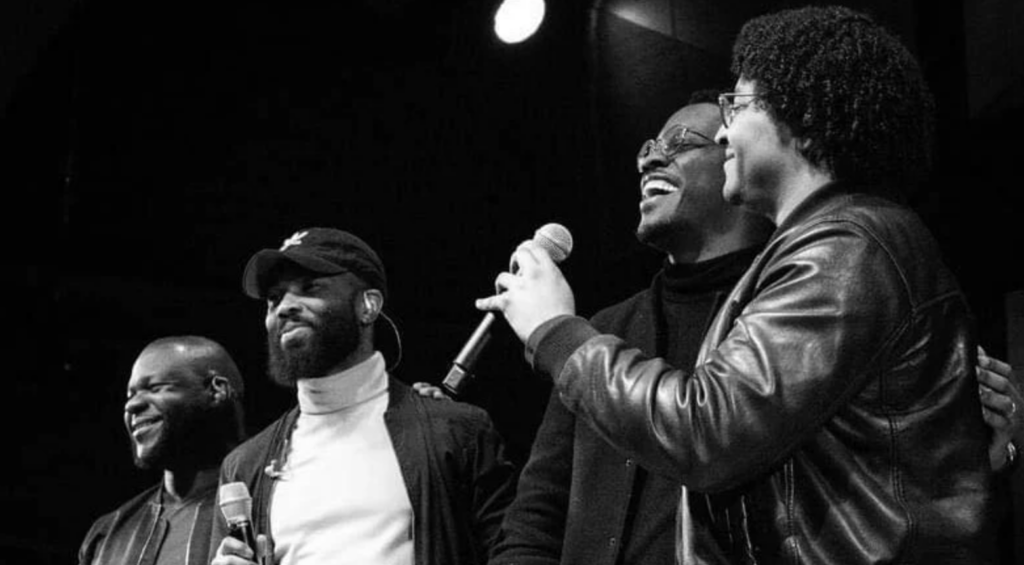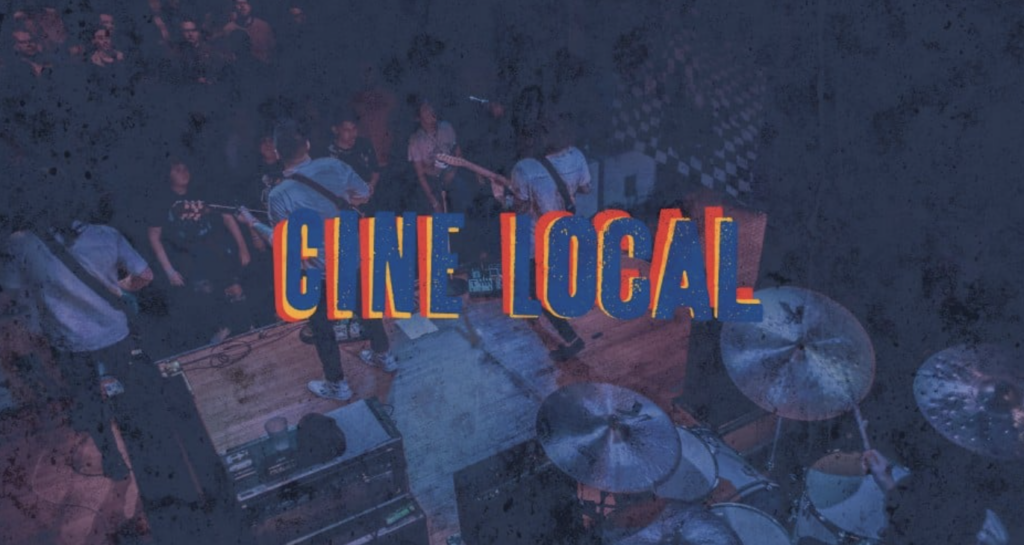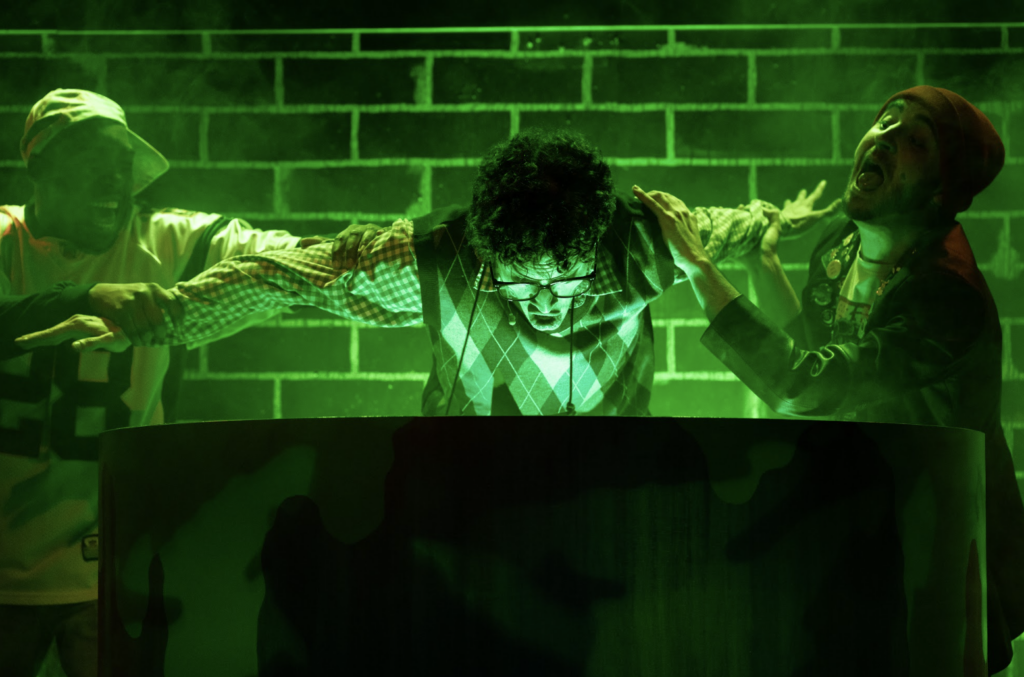Country soul duo The War and Treaty talk baptism by fire ahead of Knuckleheads gig
Country soul duo the War and Treaty are closing out 2025 in grand style. They were the first-ever live act to perform “America the Beautiful” at a WWE live event when they opened the wrestling promotion’s Indianapolis Wrestlepalooza event in September.
Just a week later, they made a surprise appearance at country superstar Zach Bryan’s Michigan Stadium concert to perform their collaboration, “Hey Driver,” as part of the largest ticketed concert in U.S. History.
They also join Sam Smith for their To Be Free: New York City residency at Warsaw in Brooklyn for seven dates starting on Saturday, November 29. Add in the fact they’ve garnered their third “Duo of the Year” for this year’s Country Music Awards, and that’s a pretty amazing couple of months.
The pair of Michael Trotter Jr. and Tanya Trotter have been on a steady upward climb since the release of their debut album, Healing Tide, in 2018, and this February’s Plus One only solidified their ability to deliver songs which grab at your emotions with heartfelt vocal delivery.
They play Knuckleheads on Tuesday, November 11, and we were excited to hop on Zoom with the couple to discuss their trajectory.
The Pitch: I can’t think of any musical group with the backgrounds you both have. Could you have even conceived of this while you’re sitting and learning how to play piano in one of Saddam Hussein’s bombed-out palaces?
Michael Trotter Jr.: Man, you know, I gotta reiterate this to you–my gratitude for you wanting to even talk to us this morning because I literally was just sitting here with my wife reflecting. Because, I just wrote a song–this morning, actually–called “Country Baptism.”
I was reflecting on this photograph my wife took of me and our son. We had just moved to Albion, Michigan, just starting our lives over in 2016. Tanya had just lost her mom and we didn’t have any place to go. We were literally just starting over and I’m sitting on this dock and I’m thinking and reflecting about my time in war. My little son is just sitting on a dock playing and I’m thinking of all of it.
All of it–not just battle buddies that I’ve lost, but I’m thinking of my engagement in the war and. I’m thinking about what you’re talking about–teaching myself to play the piano–and in my head, I was like, “Why am I doing this? What is this for? I mean, surely, I’m going to die out here in Iraq.”
I mean, it feels like it’s inevitable, but here I am playing on some piano keys, and I’m just sinking in that moment like, “But what if I do survive? What if someone likes these songs I’m creating?” Never in a million years would I have thought it would be this.
You’re telling me this story and I’m picturing it like you’re literally living Otis Redding’s “Dock of the Bay.”
Michael: It’s true. I mean, we tend to forget. My wife and I are successful in this right now. We’re able to sustain a living. We’re happy. We are happy doing what we’re doing. We’re not loathing the fact that we’re gonna get on the tour bus and leave our home. In fact, this is dope. This is really exciting.
But you know, you don’t want to ever forget the hard times, you know, and it is a thing that I’ve done in my career. I’ve been so engulfed in being so happy and being so in love with my beautiful wife and with the fans and everything that I’ve forgotten that I’m a fucking outlaw. I’ve had some real-life shit happen to me that doesn’t happen to most folks, in the name of protecting and defending our constitution in this country. You know, I’m American, son.
Looking at both of your stories, it is–to me–the ultimate come-up. Tanya had so many chances that were snatched away from her when she was younger, in terms of the music industry, and you were in a war, watching your friends die. Now? You’ve played the White House. You’re singing at a WWE premium live event. You’re getting to collaborate with all of these amazing musicians. What was the point in your career as the War and Treaty that made you first look around and be like, “We’re here”?
Tanya Trotter: We were talking about this yesterday. We were in the car, and we were just talking about different artists and what it takes to really get to the point where you can look at yourself and you can say, “Wow, I’m somehow doing this.”
I think it really takes resilience and for you to be aware of every step. I think most people don’t realize that they’re in it. It’s actually happening to you. You hear people say, “I just one day wanna be Grammy-nominated,” but then you’re at the Grammys and you’re in that moment.
I think for us, and for me, outside of my career, when I was younger, I wasn’t really present. I can honestly say that I wasn’t. In the moment, I didn’t realize I was nominated for Soul Train Music Awards. I didn’t realize I was on stage with Patti LaBelle. These are my heroes that I had pictures plastered all over my wall, singing with them.
I didn’t realize that, and I think most people are so–especially artists–eager to get there that you don’t realize the moment you’ve been waiting for is actually happening. You’re at the Grammys, you are nominated for best new artist. You are singing on stage with Jon Bon Jovi. You have Emmy Lou Harris on your record.
We don’t realize it because we’re so busy trying to get to the next level, so I think for me, the War and Treaty is really when I decided to stop and say, “I’m actually gonna have a good time” and “I’m actually going to enjoy every little moment that happens and take it in,” because we tour so much. We’re always away from home. We got our baby with us.
We’re trying, trying, trying, trying and you don’t realize that you’re there–like, the “there” you’ve been looking for all your life. You’re actually there. It’s actually happening, you know? So I would say that, you know, it’s just taking every moment and realizing that every moment is that step that you’ve been trying to make your whole life.
The name that you chose to perform under, The War and Treaty, is the battle and the peace afterwards. It seems like you acknowledged it from the start.
Michael: Yeah. We were trying to come with a name and a name that meant something and one of the bands that we owe so much to is the Civil Wars. We loved that band and, although they disbanded, they have also had an impact on our life. Everything they did was intentional. Every single thing, even all the way down to coming up with their band names.
Tanya and I, we had literally seven to eight different band names and we started arguing in order to try to land on one. I was already diagnosed with PTSD, and so Tanya’s job in my life was to try to remind me that I’m not at war anymore. She would say, “Hey, look–this isn’t the war and we need to come to some sort of treaty,” and I was like, “Man, I think you just did. That represents our journey, that represents our individual journeys and our journey together.”
The thing I love about your music is the way that it encapsulates something the people at Folk Alliance say, which is that folk is the music of the people, and the War and Treaty is every bit of that. There is soul, there is gospel, there is country, there is bluegrass, and it all comes together to make a sound that is unmistakably you. What were the songs that you both grew up on that led to this sound?
Tanya: All of it. I mean, I think if you start talking about a gospel, you have to think about the songs you grew up singing in the choir. You think about classical music. I think about Leontyne Price. You think about country music. I think about sitting on my dad’s lap, listening to just the music of westerns–not even the lyrics, just the music. You know, my dad loved westerns growing up. My mom was from Panama, so I’m listening to Calypso music. We encompass all of it because it was always around.
I don’t think you realize when you’re a child that you’re taking all this stuff in at the same time. It’s becoming a part of your DNA so, I would have to say there wasn’t for me a particular song. There was a particular, I would say, cultural experience which would be my church, where I knew that this was what I wanted to do for the rest of my life. I would have to say for me, it was all of it. It’s a part of my DNA.
Michael: I understand what Tanya’s saying, but I’m going to say there are songs, though. I remember riding on a trip with Tanya in Florida–in Tampa to be exact. And I said, “Tanya, sing to me some of your church songs that you grew up,” ’cause we grew up in two different kinds of churches.
She starts singing this song a acapella, foot stomping, and hand clapping, and I was very familiar with that. It led me to write “Love Like There’s No Tomorrow,” our first song on our first full length album called Healing Tide. “Down to the River” comes from a church song. [sings “Down by the Riverside”] “Gonna lay down my burdens, down by the riverside, down by the riverside.”
“Set My Soul on Fire” comes from [sings “Wade in the Water”] “Wade in the water, your love set my soul on fire.” So there are several songs that are embedded in the DNA of the War and Treaty. For me, when I write, I always refer back to some of those old spirituals and then, you know, like Johnny Cash’s version of [sings “Ain’t No Grave”] “Ain’t no grave gonna hold my body down.”
Dr. Ralph [Stanley] he says [sings “O Death”] “Oh, death, death.” I’m more prone to those kinds of meditative, haunting songs. I want Jesus to walk with me, you know?
This is literally the best way I could have started my day today. Thank you so much. So, you have this album Plus One, that came out at the beginning of the year, and you’re touring on it all year long. We’re coming up towards the end of 2025, so what does 2026 look like for the War and Treaty?
Michael: Man. Growing, unleashing what we’ve been working on in 2025. We’re working hard and you’re gonna hear and see a lot of us. We’re really excited about pushing in deeper to what we do. We’re touring a lot. We’re working on a UK tour. We’re working on a Canadian tour. It’s a lot of things taking place and, of course, we are not gonna abandon the home front.
The War and Treaty play Knuckleheads on Tuesday, November 11. Details on that show here.





